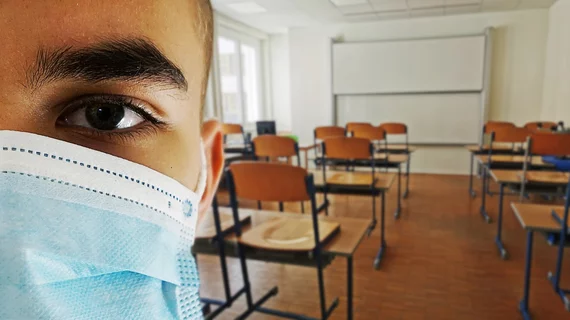COVID's impact on breast radiology trainees represents a 'critical workforce issue'
The negative impact of the pandemic on radiology trainees could be felt in breast imaging for years to come.
Because of COVID restrictions, individuals training in core and higher breast radiology during the pandemic have had limited exposure to key breast imaging methods. Consequently, this also resulted in a reduction of interest in breast imaging among trainees, authors of a new paper published in Clinical Radiology shared.
“As well as having a negative impact on breast radiology training overall, the pandemic has had a detrimental effect on attracting trainees to breast radiology as a future career. It is of key importance that trainees have a positive core breast rotation as this experience appears central to many trainees' decisions to pursue higher breast training,” corresponding author S. Lowes, from the Breast Screening and Assessment Unit at Queen Elizabeth Hospital, and co-authors explained.
The authors’ findings are the result of a 25-question survey that was completed by 69 UK radiology trainees. The responses indicated that more than half (55%) felt that their training was negatively impacted due to the pandemic. Indicating their exposure to the important breast modalities was less than expected, many said they felt less than prepared to take on the role of breast imaging consultants.
Of the respondents who did complete their core training before the onset of COVID, 41% cited positive experiences that impacted their decision to continue to pursue breast radiology. Conversely, this number was just 9% among the respondents who completed their core training during COVID.
Noting the 4.6-fold decrease, Lowes and colleagues suggested that a “significant opportunity to recruit trainees to breast radiology was lost” due to COVID.
The authors noted that even before the pandemic, consultant breast radiologists were among the most in demand specialists. The loss of interest in it as a specialty due to COVID will inevitably pose further negative impacts for recruitment and represents “a critical workforce issue,” the authors suggested.
“It is therefore more important than ever that trainees are given a positive experience during their breast rotations and given opportunities and encouragement to consider breast radiology as a potential career choice.”
The study abstract can be viewed here.

